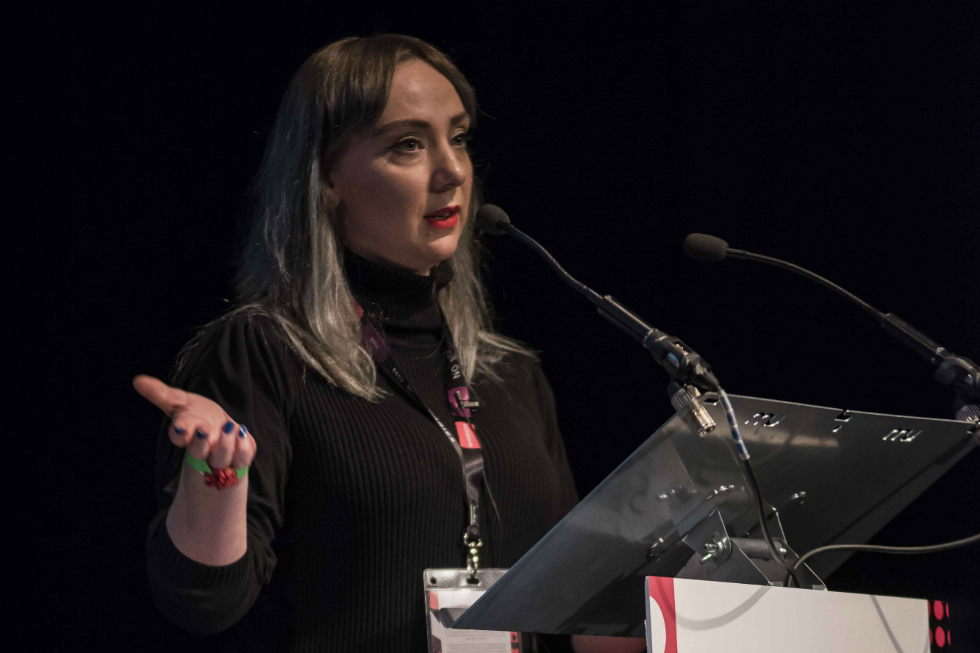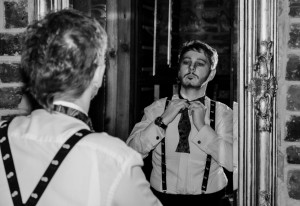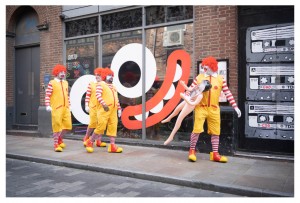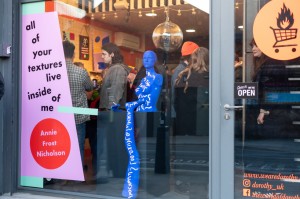The Dangers Of Othering & Other Concerns Raised At No Boundaries Conference 2017

The art and culture sector has huge potential for helping to heal the divisions surfacing across society, finds Sara Jaspan at day one of this year’s No Boundaries. Yet are conferences like this preaching to the converted? Or a much-needed catalyst for hard work?
Now in its third year, the No Boundaries conference stems from two deceptively simple questions: what should be the role of art and culture in today’s world, and how can this be achieved? Held on the eve of Britain’s official exit from the EU, in a climate of growing fear, intolerance and austerity, the first day of 2017 talks at HOME, Manchester, was dominated by a very timely set of issues. Among these: the pressing need for much greater social inclusion; more equal representation; increased public engagement, active citizenship, civic ownership and youth involvement; and the formation of new alliances both at home and abroad. The message was clear – the art and culture sector has huge potential for helping to heal the divisions that have surfaced across society, yet have a long way to go towards achieving this. Co-hosted between HOME and Hull Truck Theatre using live streaming technology, you can catch up on yesterday’s talks and follow day two here.
The event is a rare opportunity for the sector to come together and take stock – aiming to provoke honest discussion around the state of the arts and effect real, progressive change. Perhaps the most valuable contribution towards achieving this came, however, from the diversity of the day’s panels, which featured numerous speakers from outside the industry or who positioned themselves on its fringes, bringing fresh perspectives on the challenges faced. As well as NPO board members and directors, we also heard from struggling artists, community representatives, smaller charity organisations, foreign officials and experts from the fields of sport, business and technology.
Framing this approach from the outset, the title of the first session was Disruptive Influences. From the talks given, the overriding emphasis was on how far the arts still lag behind when it comes to inclusion (based on gender, class, ethnicity, age, wealth, disability) – both regarding its audiences, workers and decision makers. Writer Nikesh Shukla spoke powerfully about the “othering” dangers of denying people a voice, and the importance of organisations challenging this “from the ground up” rather than through tokenistic quotas and diversity agendas. Claire Hodgson and Jamie Beddard from Diverse City championed the role of good data in exposing these issues, specifically around disability. Jessica Turtle (pictured, main image), who co-founded the UK’s first Museum of Homelessness, stressed the need for institutions to begin taking a bolder, more politically active stance towards tackling social inequalities, and to use their power to help give a voice to those who lack one. Others called for greater transparency in dealing with funding and pay, and the need for more “unlikely collaborations” between larger organisations and less represented individuals and groups to be formed.
The following panel – Are We In The Right Place? – was devoted to exploring the politics of place-making and the arts. Claire Dohorty from Situations raised an important point about how place-specific projects can often risk externally imposing specific narratives upon an area, and amplifying a more insular sense of “local” identity and ownership – devaluing outside voices and the value they can bring. Farida Mohammed and Susanna Wallis discussed their experiences of becoming Cultural Connectors through the Creative Barking and Dagenham project (part of ACE’s Creative People and Places fund) and the entry this gave to an seemingly closed world. Others emphasised the importance of including everyday citizens in the commissioning and programming of new works in order for any meaningful, sustained level of involvement.
Similar themes were echoed in session three, Present People, Future Success, where theatre maker Yemisi Mokuolu expressed the need to restore cultural custodianship to the public by providing more opportunities for people to genuinely interact with art and share their own creativity, rather than simply offering passive experience curated by others. Co-founder of Substance research company, Adam Brown, directed attention towards the rapid growth of community owned business models in other sectors, specifically drawing on his experience as a founding board member of the supporter-owned football club, FC United of Manchester. Again, the message was around the need to bestow audiences with real, decision-making power, rather than simply programming “for them”. He also highlighted how co-ownership could bring about new financial resilience and foster a sense of community where little existed before.
Poignantly, Sir Nicholas Serota’s first speech as Chair of Arts Council England (bringing the day to a close) focused particularly on the importance of championing culture and creativity equally among the next generation. This culminated in the announcement of a new independent investigation into the best ways of ensuring pupils across UK get “opportunities currently only available in the best schools”, entitled Durham Commission of Creativity and Education, to be published in 2019. Chiming with the rest of the day, he also expressed a greater commitment to investing in areas outside of London, where many feel a sense of being “left behind”, and championed the positive role the arts can play in helping to maintain and strengthen the UK’s relationships oversees.
The progressive models and ambitions put forward by the speakers were positive, and offered real tools for change; however, several delegates voiced concerns about the makeup of the audience, which (they suggested) consisted largely of diversity officers rather than CEOs; i.e. was the conference preaching to the converted? It’s hard to tell what the impact of this year’s event will be. One thing’s for sure: without a joined effort from across the arts, it’s difficult to imagine any headway happening in terms of the pressing concerns — greater social inclusion; more equal representation; increased public engagement, active citizenship, civic ownership and youth involvement; and the formation of new alliances both at home and abroad. Taking stock is the first step; we’ve got a lot of hard work to do.
Sara Jaspan
Sara attended No Boundaries yesterday, 28 March 2017. Day two asks new questions around Internationalism and Citizenship, as well as a series of Open Sessions exploring thoughts and provocations put forward by the audience. You can follow the action via the livestream or catch up on yesterday’s talks on their website. Join in the debate on Twitter using the hashtag #NB2017
No Boundaries is supported by Arts Council England and the British Council, and is this year hosted at Hull Truck Theatre, Hull, and HOME, Manchester
Main image: Jessica Turtle, speaking at No Boundaries 2017





